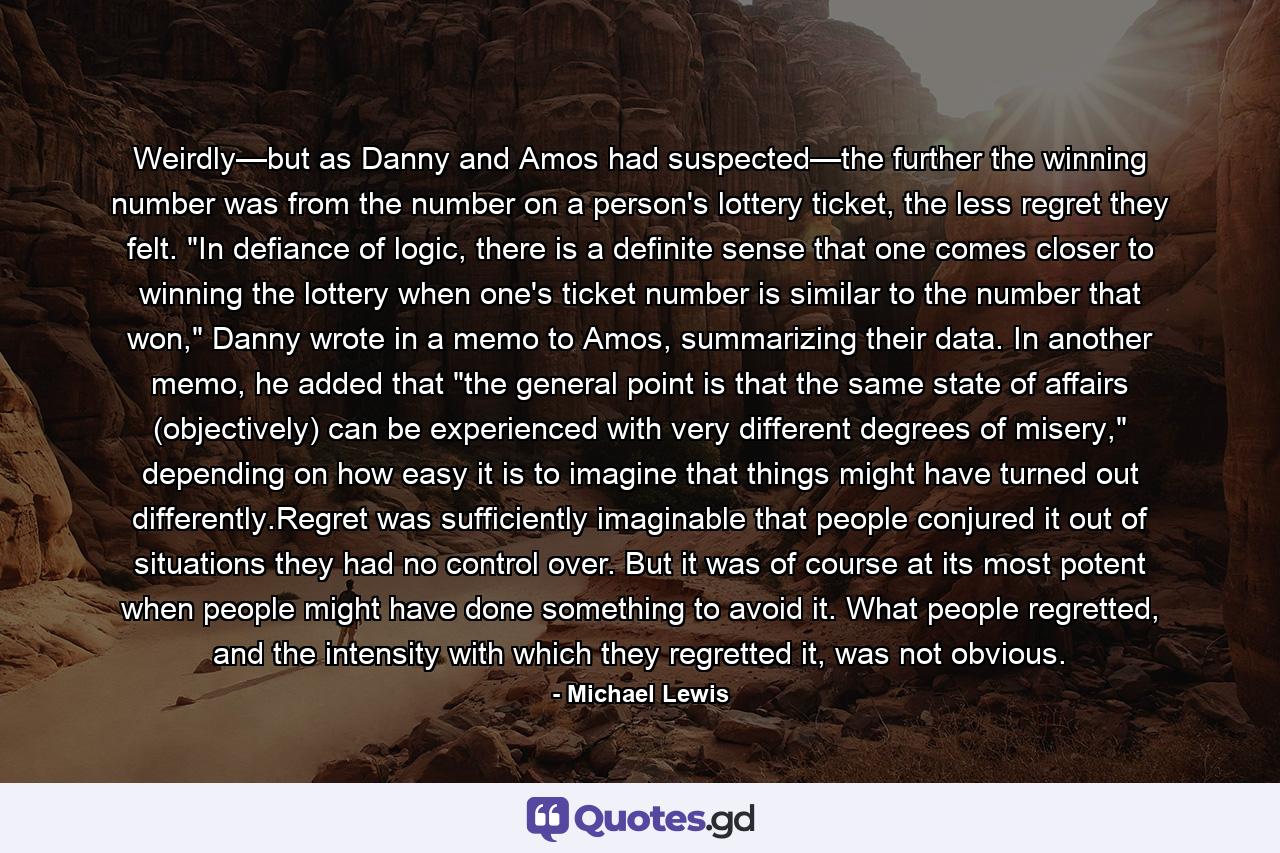Weirdly—but as Danny and Amos had suspected—the further the winning number was from the number on a person’s lottery ticket, the less regret they felt. “In defiance of logic, there is a definite sense that one comes closer to winning the lottery when one’s ticket number is similar to the number that won,” Danny wrote in a memo to Amos, summarizing their data. In another memo, he added that “the general point is that the same state of affairs (objectively) can be experienced with very different degrees of misery,” depending on how easy it is to imagine that things might have turned out differently.Regret was sufficiently imaginable that people conjured it out of situations they had no control over. But it was of course at its most potent when people might have done something to avoid it. What people regretted, and the intensity with which they regretted it, was not obvious.
